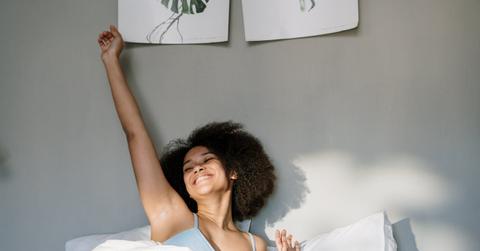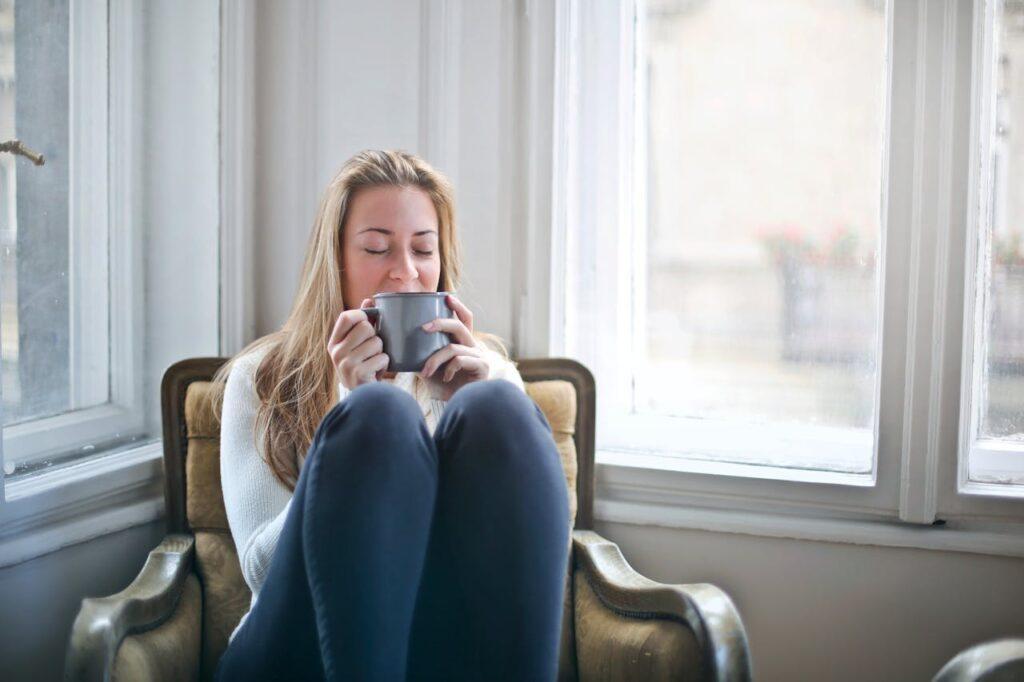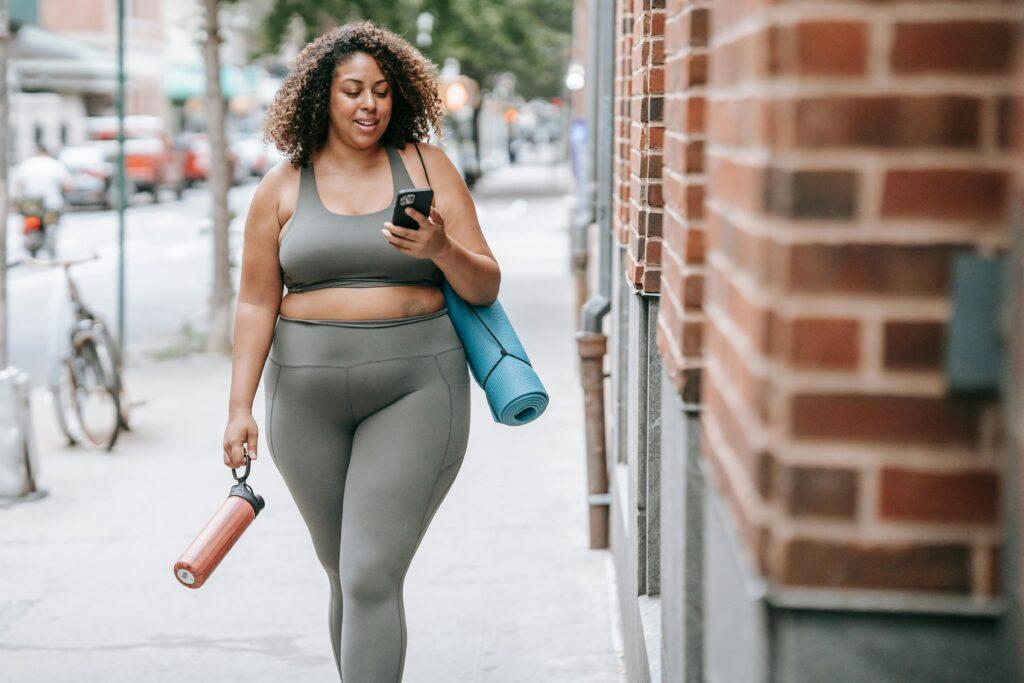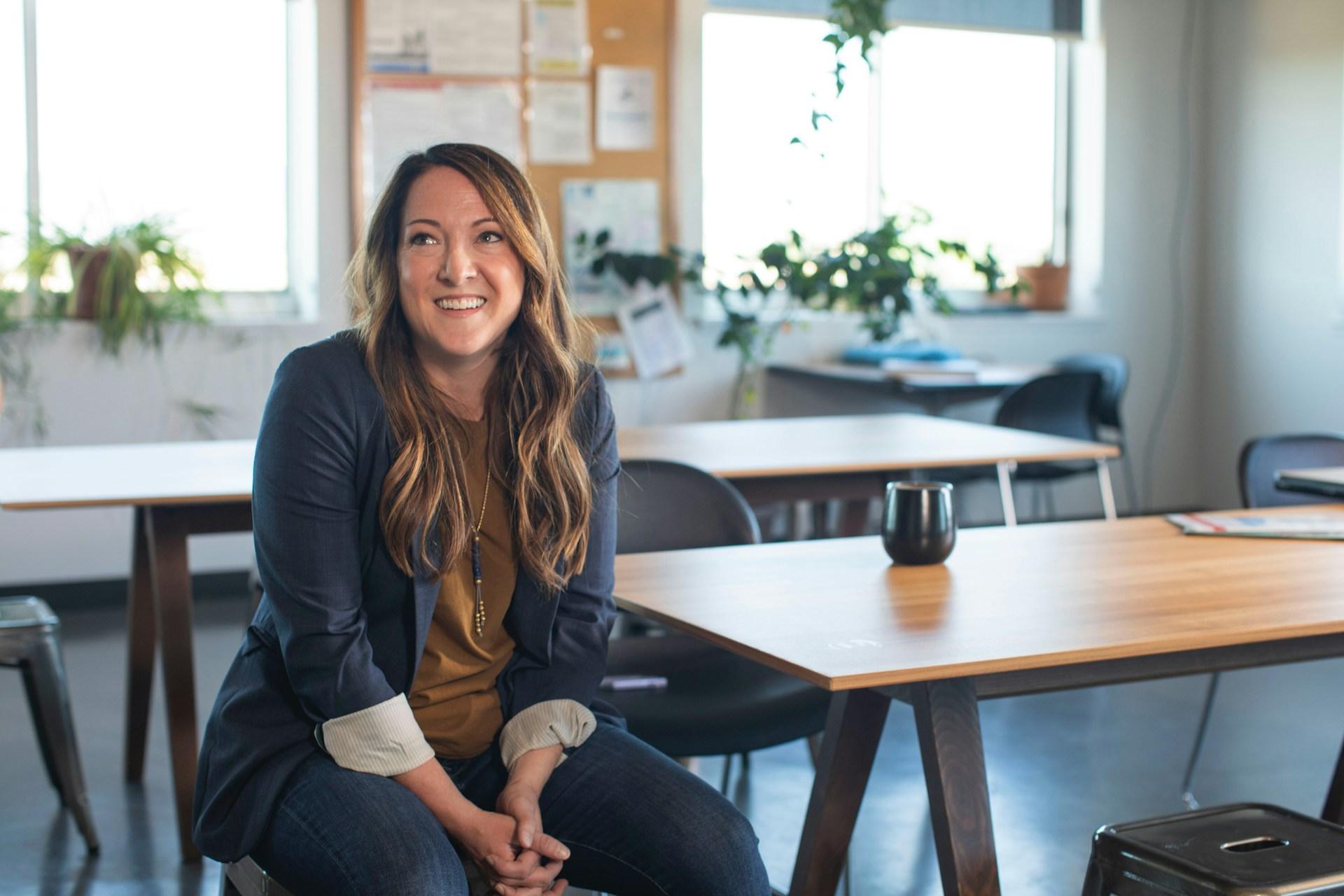5 Ways To Conquer Morning Anxiety And Take Charge Of Your Day

Check email! Check email! This was my mental alarm for months, without a snooze button. My heart would race, my breathing would get shallow, and my thoughts would be all over the place.
My job search wasn’t going well and my savings were thinning. Every morning, I’d get the uncomfortable reminder that everything was falling apart. I (clearly) didn’t know how to deal with anxiety in the morning.
Waking up anxious means starting the day on an unhealthy and overwhelming note. No one wants that especially when you need to seize the day.
So how do you defeat the anxiety and create a conscious start to the day?
Breathwork

Crystal Riley, the founder of Wellness & Woo explains how anxiety in the morning works, “Anxious thoughts can trigger your subconscious and make you wake up. Anxiety activates your body’s stress response, releasing hormones like cortisol and adrenaline. These prepare your body to deal with a perceived threat by increasing your heart rate and alertness. Even though there isn’t a real danger, your brain interprets the anxiety as a signal to wake up and be ready to act.”
Breathwork is the bridge that brings the body and mind on the same, peaceful page.
“Breathwork helps calm the mind by activating the parasympathetic nervous system, which is responsible for the “rest and digest” response. This system counteracts the sympathetic nervous system’s “fight or flight” response, which is triggered by stress and anxiety.
When you practice deep, slow breathing, it sends signals to your brain to relax. This increases the production of calming neurotransmitters like serotonin. As a result, your heart rate slows down, your blood pressure drops, and you start to feel calmer and more at ease”, states Riley.
Morning Pages
Anxiety creates clutter in your mind and leaves you with uncomfortable sensations that are difficult to make sense of. One way to acknowledge and understand them is to write morning pages, a concept Julia Cameron discusses in her book, The Artist’s Way.
Keep a pen and diary accessible to your bed. Right after you wake up, write every thought or feeling you experience. Be objective and fill three page-sides.
Women tend to internalize stress more than men, and morning pages help you note your fears, uncomfortable sensations, and residual emotions. Instead of wondering how to deal with anxiety in the morning, this activity allows you to channel it.
Movement

Anxiety triggers adrenaline, which feels like a gush of energy. Moving your body can neutralize this force.
You can begin with something simple and slow like stretching, which a study proved, can reduce anxiety and exhaustion. If you feel extra energetic, break out into a dance to your favorite song.
Instead of heavy physical movements, you can also choose to declutter your space.
“Clutter creates visual noise, making it harder for the brain to process and focus”, says Sandra Kushnir, CEO at Meridian Counseling. “Decluttering, even small spaces like your nightstand or workspace, can help reduce feelings of overwhelm. A tidy environment sends a signal to your brain that things are in order, which can foster a sense of control and calm. By decluttering, you’re actively creating a space that promotes peace and clarity, which is vital when managing anxiety”, she continues.
Mindful Feel-Good Habits
Morning anxiety might make you feel overwhelmed. Creating a feel-good habit can nullify your feelings.
Kushnir says, “Starting the day with simple yet intentional self-care routines can make a significant difference. For example, a skincare routine that involves gentle cleansing and moisturizing can help center your focus on physical sensations rather than anxious thoughts. It’s a small act of care that signals to your body that you are investing in yourself.”
An Alarm Clock
When you wake up with anxiety, it’s better not to check your phone. Even SMS notifications are linked with stress.
Plus, once you access your phone, one thing leads to another, and in no time you’re checking emails, TikTok, Instagram, and so on.
Your brain wakes up in stages — from deep sleep (delta) to a dreamy state (theta), to a more relaxed, aware state (alpha), before becoming fully alert (beta). But when you grab your phone first thing, your brain skips the natural process and jumps straight to being wide awake.
If you check your phone right after you wake up and are wondering how to deal with anxiety in the morning, the simplest way would be to trade your phone alarm for an alarm clock.






